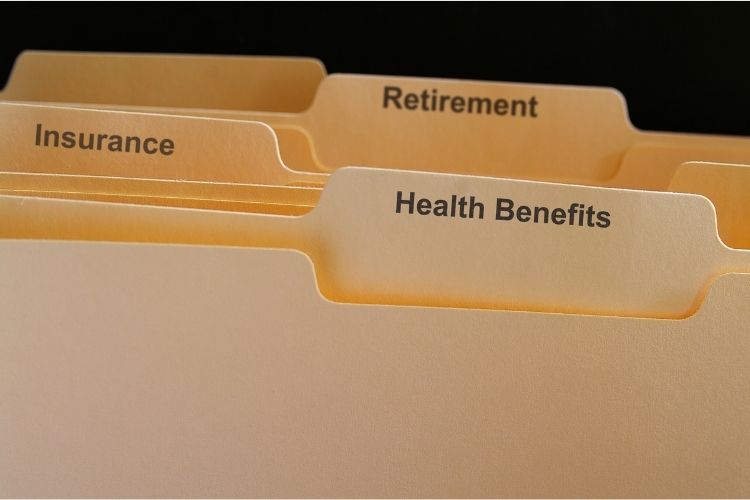As a government employee, your federal benefits are among some of the best in the United States. Not only do you get comprehensive health coverage, but you’re also eligible for low to no cost life insurance, flexible spending accounts, and a host of other benefits.
However, as you near retirement, you may find yourself asking a major question: “What will happen to my federal benefits when I retire?”
This article will answer that question for you, as well as go over some of the processes you’ll need to know in order to keep those eligible benefits and some of the special cases you might encounter.
Here’s what happens to your federal benefits when you retire:
Benefits for Federal Employees
Before explaining which benefits are eligible for carrying into retirement and which ones aren’t, it is first necessary to discuss the main benefits that federal employees receive.
Health Care Benefits
Federal employees receive a few different types of health care benefits. First, there is medical care that is available at low premiums. Dental and vision are also included in your health care benefits.
With federal benefits, you are also privy to what’s called an HSA or Health Savings Account. With the federal HSA, they allow you to set aside a portion of your pre-tax income into a savings account. This account can then be accessed for health-related expenses that aren’t covered by your normal health plan, such as OTC medications and insurance premiums.
Then, as part of the health care benefits package, you’re also eligible for special life insurance policies (such as FEGLI), child care, and elder care.
Retirement Benefits
As you’re likely aware, being a federal employee comes with several retirement benefits, including your basic benefits, your Thrift Savings Plan, and your Social Security benefits.
As with most things involving the US government, however, there are limitations on these. For example, for your basic benefit plan, you must have worked as a federal employee for at least five years to be eligible to receive payouts from it.
Because of the nature of this article, though, we’ll be focusing mostly on the benefits that don’t directly involve federal retirement, such as your health package and life insurance, among others.
Which Benefits Can I Carry Into Retirement?
For the most part, the vast majority of your benefits can be carried into retirement so long as certain conditions are met. Below, you’ll find a list of the various benefits that can be carried over and what conditions you’re responsible for meeting to ensure that it happens:
Federal Employee Health Benefits (FEHB)
Your Federal Employee Health Benefits (or FEHB) coverage is what is otherwise known as your health insurance, including dental and vision. This insurance is eligible to continue into retirement at the same premium you had when employed.
However, to do so, you must have been enrolled in the FEHB program for a minimum of five years prior to retirement or enrolled continuously from the first open seasonal enrollment if less than five years. Additionally, you must also retire with an immediate annuity, meaning your retirement benefits begin paying out no later than one month (30 days) following your retirement date.
Please note, however, that while your premiums won’t go up, you may see an increase on your FEHB statement due to the premium conversion from your normal (likely biweekly) pay period to a monthly payment. There shouldn’t be an actual increase, though.
Federal Employee Group Life Insurance (FEGLI)
Like your health care, you are also able to carry your Federal Employee Group Life Insurance (FEGLI) into retirement as well. According to the Office of Personnel Management (OPM), this is another benefit that requires certain stipulations to be met before you can carry it over, however.
For your FEGLI coverage, you must have been enrolled for a minimum of five years or from the earlier opportunity to enroll that you were given with no gaps in coverage.
United States Postal Service Employees
It’s important to note that employees that work under specific branches of the government, such as the USPS, may see a slight increase in their premiums for any benefits they choose to carry over.
This is simply because the USPS pays a portion of your premium while you are employed there, which ceases once you retire. Because of this, you’ll switch from paying your portion of the premium to paying the whole premium.
What Federal Benefits Can’t I Take Into Retirement?
Federal benefits such as your HSA (Health Savings Account) are not eligible to be taken into retirement with you.
For accounts such as this one, any expenses you incur up to the point of retirement will be reimbursed to you even if you leave before the entire reimbursement has been paid out. However, anything that is bought after the point of retirement that would normally be eligible for money back through your HSA (Health Savings Account) will not be reimbursed.
It is also critical to note that any funds in your HSA will be forfeited back to your employer before you leave, so you should spend them while you can. For example, if you’ve been putting off a procedure that insurance doesn’t cover or would like to stock up on certain medical supplies, we suggest you do it before retiring.
After all, you won’t be able to take the money with you.
Conclusion
Retirement may be an exciting time, but losing your benefits certainly isn’t. For this reason, we urge you to ensure that you meet all of the requirements needed to keep your coverage before you retire.
If you have additional questions on specific benefits and whether they can be carried over, or you need help making sure that you keep the ones listed in this article, we urge you to contact one of our dedicated retirement planners today.
We’re here to help you retire comfortably and securely, so don’t hesitate to reach out!


